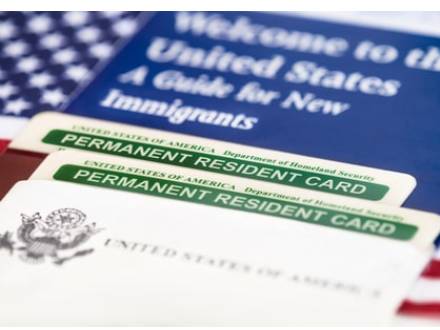Can You Still Get a Green Card After a Texas Illegal Entry?
 Immigration issues have become much more uncertain in the past few months. Perhaps you came to the United States as an undocumented immigrant, and now wonder whether there is any way you can get a green card. Crossing the border into Texas as an undocumented immigrant can make the path to legal residency much more complicated, but not impossible in every case.
Immigration issues have become much more uncertain in the past few months. Perhaps you came to the United States as an undocumented immigrant, and now wonder whether there is any way you can get a green card. Crossing the border into Texas as an undocumented immigrant can make the path to legal residency much more complicated, but not impossible in every case.
While you may be worried that your chance of obtaining a green card is permanently lost, there are still some options for adjustment of status, waivers, or, in some cases, consular processing. Before giving up entirely on your dream of obtaining a green card, it is important to speak to a knowledgeable Plano, TX immigration attorney. Unlawful entry can certainly create legal hurdles, but your attorney can assess your unique situation to determine whether options exist.
What is Considered "Illegal Entry" Into the United States?
Entry Without Inspection (EWI) refers to entering the U.S. without authorization, and without a passport, visa, or other required documents, thereby skipping inspection by a U.S. Customs and Border Protection officer. Illegal entry is usually accomplished in this manner. Entering the U.S. with fraudulent documents or by providing false information to immigration officials is also a means of EWI. Illegal entry, or EWI, differs from visa overstay, which occurs when an individual enters the U.S. legally with a visa but remains in the country beyond their authorized period.
How Does Illegal Entry Complicate the Green Card Process?
Illegal entry into the United States can significantly complicate the green card process, resulting in one or more of the following:
- There is an increased risk of ICE apprehension and deportation proceedings.
- Any prior violations or criminal convictions can increase deportation risks.
- The individual may be found inadmissible, making him or her ineligible to enter or remain in the United States for three years, 10 years, or permanently.
- Future visa options are negatively impacted.
- U.S. citizens or residents attempting to sponsor an unauthorized immigrant could face their own difficulties.
- There are very limited ways to gain a green card after unauthorized entry into the U.S.
- Entering or re-entering the U.S. without permission can result in criminal charges with penalties that can include fines and even imprisonment.
- Asylum seekers who enter the U.S. illegally can have their claims significantly complicated.
What Are the Possible Pathways to a Green Card Following Illegal Entry?
Following unauthorized entry into the U.S., there are limited options for obtaining a green card. One of these options is marriage to a U.S. citizen; however, the marriage must not be fraudulent, and even marriage to a U.S. citizen does not guarantee protection against deportation. Some individuals may be eligible to use an I-601 or I-601A waiver to address unlawful presence.
The I-601 is broader, covering various grounds of inadmissibility, including unlawful presence, while the I-601A is a provisional waiver specifically for unlawful presence, allowing some individuals to remain in the U.S. while the waiver is processed. Regardless of unauthorized entry, some individuals may qualify for special protections for abuse victims through the VAWA (Violence Against Women Act). Victims of crimes or trafficking could also qualify for special protections regardless of unlawful entry.
Finally, Parole in Place (PIP) is for spouses or parents of U.S. military members. PIP offers a temporary period of authorized presence in the U.S. with protection from deportation, and is granted on a case-by-case basis by USCIS. In some cases, those granted PIP are allowed to work legally in the U.S. during their parole period. Consular processing allows a person who entered the U.S. unlawfully to return to his or her home country, then apply for a U.S. immigrant visa from outside the U.S.
Contact a Dallas, TX Immigration Lawyer
USCIS and immigration courts can be complex, but illegal entry does not always mean the path to a green card has ended. Careful legal planning on the part of your Plano, TX immigration attorney can help you find alternatives to your goal of permanent residency. Attorney Lee can work with clients remotely when necessary. He offers one-on-one guidance, and you will always work directly with him.






